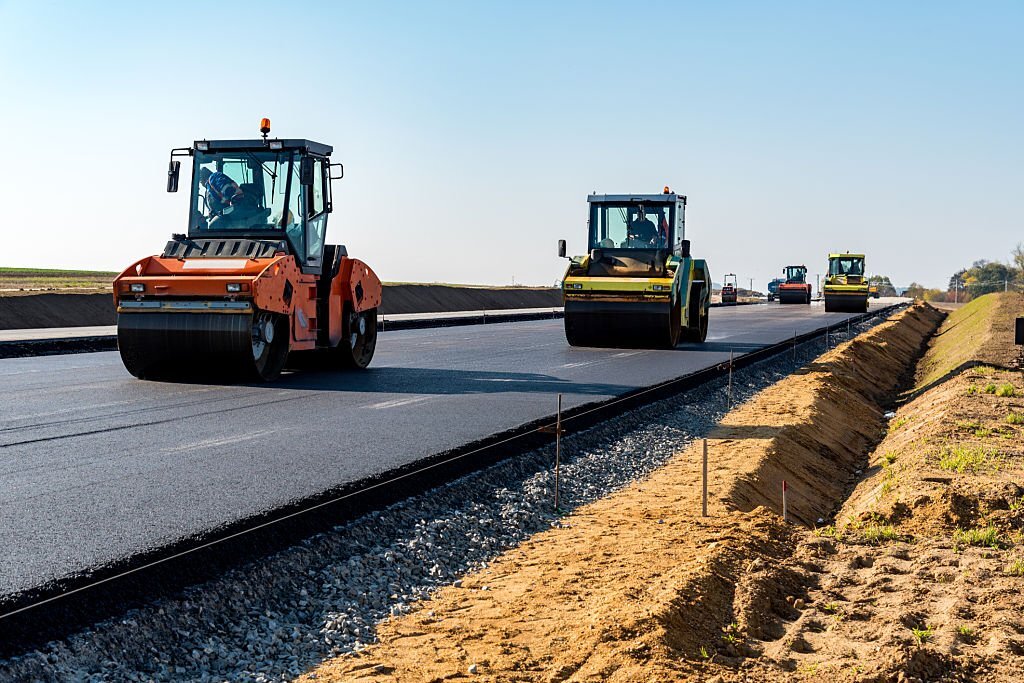
Road construction is a complex process that requires precise execution and attention to detail to ensure the quality and longevity of the finished roadway. Among the many heavy equipments used in road construction, compactors play a crucial role in achieving uniform compaction of road materials, increasing pavement durability, and creating smoother surfaces. These machines are essential for compacting various road materials, including soil, gravel, and asphalt, to create a solid and stable foundation for the road surface. In this article, we will explain the role of compactors in road construction using heavy equipment. We will explore the importance of compaction in road construction, the types of compactors used, and their specific functions in achieving road quality and longevity.
1. Importance of Compaction in Road Construction
Achieving Uniform Compaction: Compaction is essential to eliminate air voids and ensure uniform density throughout the road materials, enhancing the road’s load-bearing capacity.
Improving Pavement Durability: Proper compaction increases the pavement’s resistance to wear, reducing the likelihood of premature cracking and rutting.
Settlement Prevention: Compaction minimizes settlement and subsidence, preventing long-term damage to the road structure.
2. Types of Compactors Used in Road Construction
Vibratory Rollers: Vibratory rollers are versatile machines that use vibration to achieve uniform compaction of granular materials like soil, gravel, and asphalt.
Pneumatic Rollers: Pneumatic rollers use rubber tires to compact materials and are effective in sealing the surface with a kneading action.
Combination Rollers: Combination rollers combine the advantages of vibratory drums and pneumatic tires, offering versatility in compacting various materials.
3. Functions of Compactors in Achieving Road Quality
Soil Compaction: Compactors are used to achieve proper soil compaction for road subgrades, ensuring a stable foundation for the road layers.
Base Course Compaction: Compaction is critical in compacting base course materials to create a robust and load-bearing layer.
Asphalt Compaction: For asphalt pavements, compactors ensure uniform compaction of the asphalt layers, creating a smooth and durable road surface.
4. Benefits of Compactors in Road Construction
Reduced Maintenance: Well-compacted roads require less maintenance, saving time and resources over the road’s lifespan.
Extended Road Life: Compacted roads have increased durability, leading to a longer road life and reduced need for frequent repairs.
5. Compaction Techniques in Road Construction
Proper Passes and Overlaps: Achieving proper compaction requires carefully planned passes and overlaps to ensure complete coverage.
Compaction Temperatures: For asphalt pavements, compactors must work within the specified temperature range to achieve optimal compaction.
Moisture Control: Proper moisture control is essential, especially for soil compaction, to achieve the desired density.
6. Importance of Skilled Operators
Operator Expertise: Skilled operators are essential in achieving proper compaction results and ensuring efficient use of compactors.
Training and Certifications: Proper training and certifications for compactors’ operators are crucial for safe and effective operation.
7. Quality Control and Testing
Density Testing: Density tests are performed to verify the compaction achieved in different layers of the road.
Compaction Monitoring: Continuous monitoring of compaction during construction ensures quality and adherence to specifications.
Conclusion
Compactors play a vital role in road construction using heavy equipment, ensuring uniform compaction, improving pavement durability, and creating smoother road surfaces. The proper selection and use of compactors are crucial for achieving road quality and longevity. Skilled operators, proper compaction techniques, and quality control measures are essential in the successful execution of road construction projects. As construction companies prioritize road quality and durability, compactors remain indispensable machines for achieving optimal compaction results and building safe and long-lasting roads.

